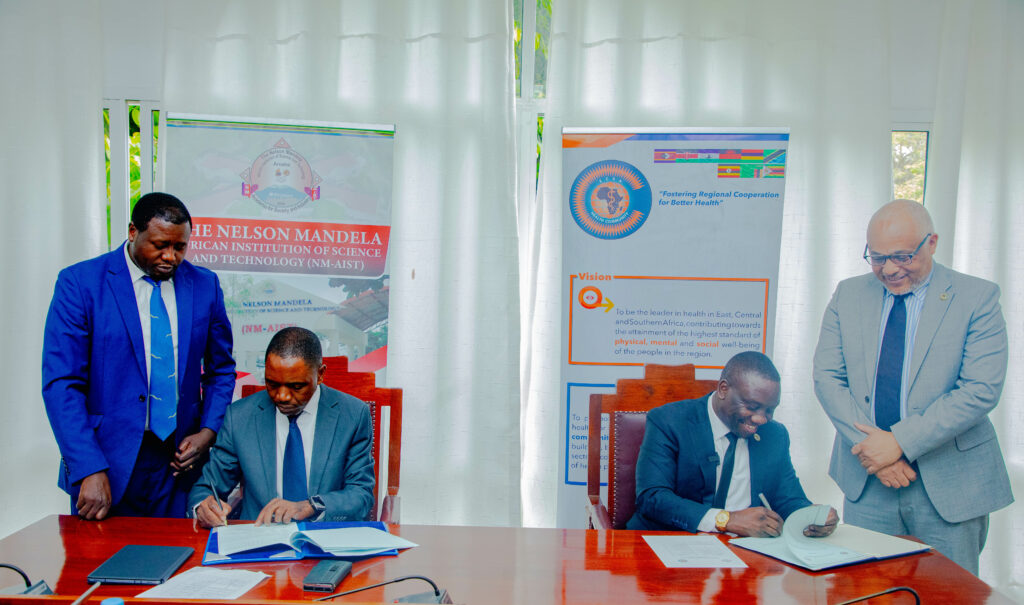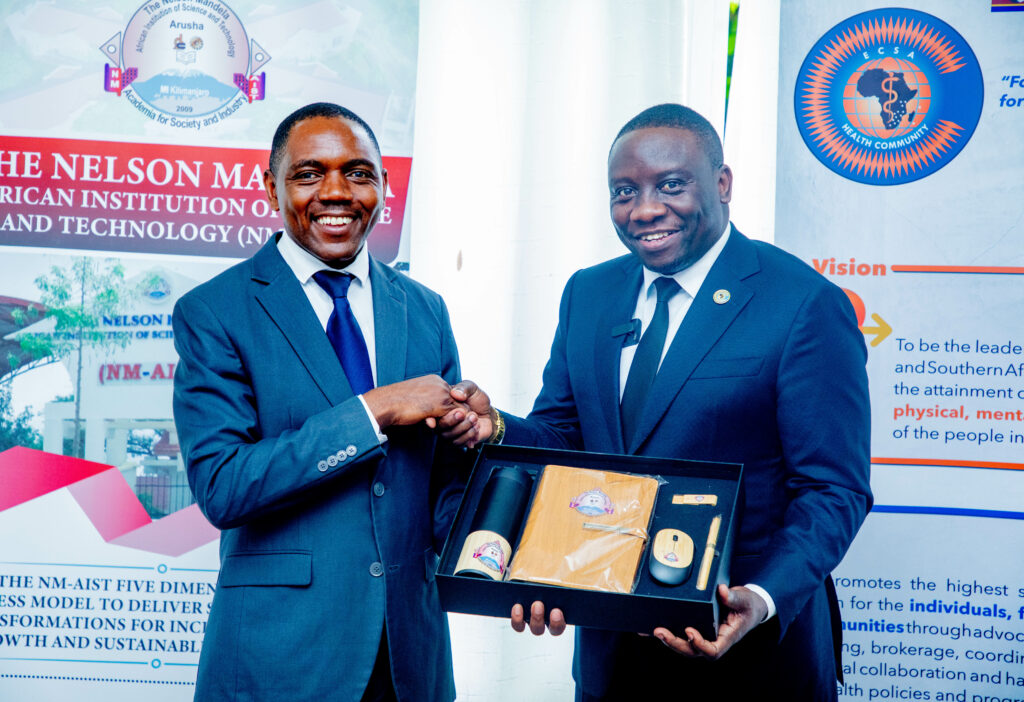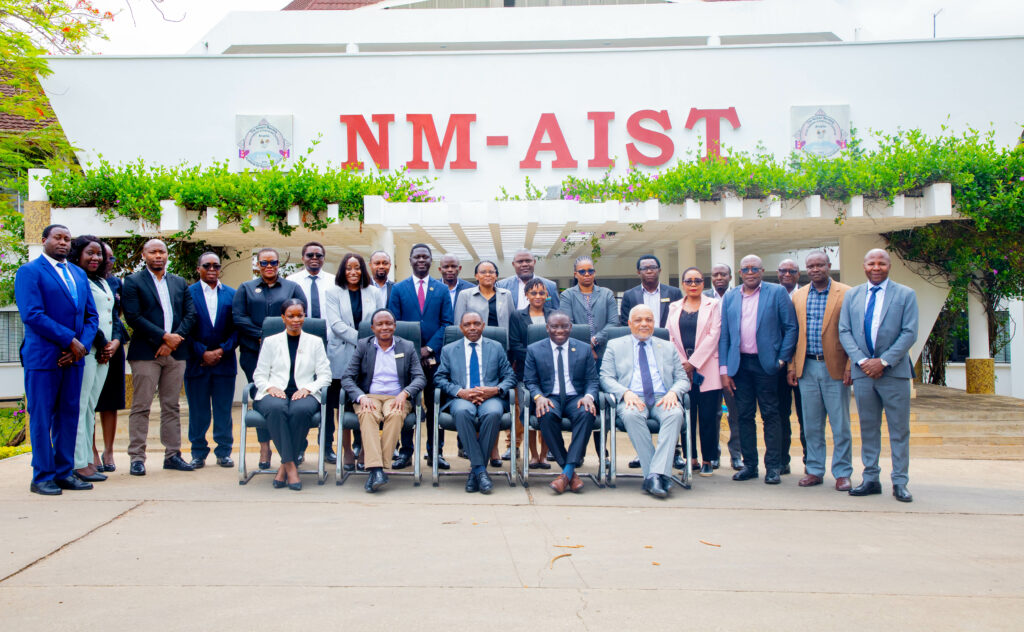
The Nelson Mandela African Institution of Science and Technology (NM-AIST) has signed a memorandum of understanding with the East, Central, and Southern Africa Health Community (ECSA), aimed at fostering collaboration in research, innovation, and the dissemination of innovative technologies in the health sector.
Speaking at the signing ceremony on October 28, 2025, the Deputy Vice-Chancellor of NM-AIST, Prof. Maulilio Kipanyula, said the institute is committed to developing innovative technologies and conducting research that delivers positive societal impact.

The agreement outlines ten areas of collaboration, including joint research, the application of digital technologies in health systems, and strengthening innovation that provides solutions to health challenges across Africa.
“As an institution focused on science, technology, and innovation, we are committed to producing technologies and solutions that will strengthen health systems in the country and across Africa. ECSA operates in many countries, and for NM-AIST, this presents an opportunity to collaborate, build health systems, and deliver digital solutions in the health sector,” Prof. Kipanyula said.
According to Prof. Kipanyula, NM-AIST is one of the leading institutions in the country in terms of patents, holding around 33 patents, several of which directly address health issues. These include nutritional technology through fast porridge, an AI-based X-ray image recognition system, specialized theatre gowns, and an innovative drip system that simultaneously mixes multiple medications.

ECSA Director-General, Dr. Ntuli Kapologwe, described the agreement as strategic, expecting it to yield tangible results in the short term, including the establishment of a center of excellence for science, technology, innovation, and research.
“We have emphasized science and health diplomacy so that the nine member countries benefit from NM-AIST’s innovations. The stunting rate in our region is between 30 and 35 percent, so we need nutritional technologies to address this challenge,” Dr. Ntuli said.

He added that the collaboration will also involve the use of digital and artificial intelligence technologies in the delivery of healthcare, community wellbeing, and nutrition, while strengthening the One Health concept in over 55 African countries.
Currently, NM-AIST serves students from 17 African countries, while ECSA includes members from 9 countries, a factor expected to broaden the scope of collaboration and create positive impacts on community health across the continent.






 Visit Today : 438
Visit Today : 438 Visit Yesterday : 1594
Visit Yesterday : 1594 This Month : 7409
This Month : 7409 This Year : 126898
This Year : 126898 Total Visit : 814164
Total Visit : 814164